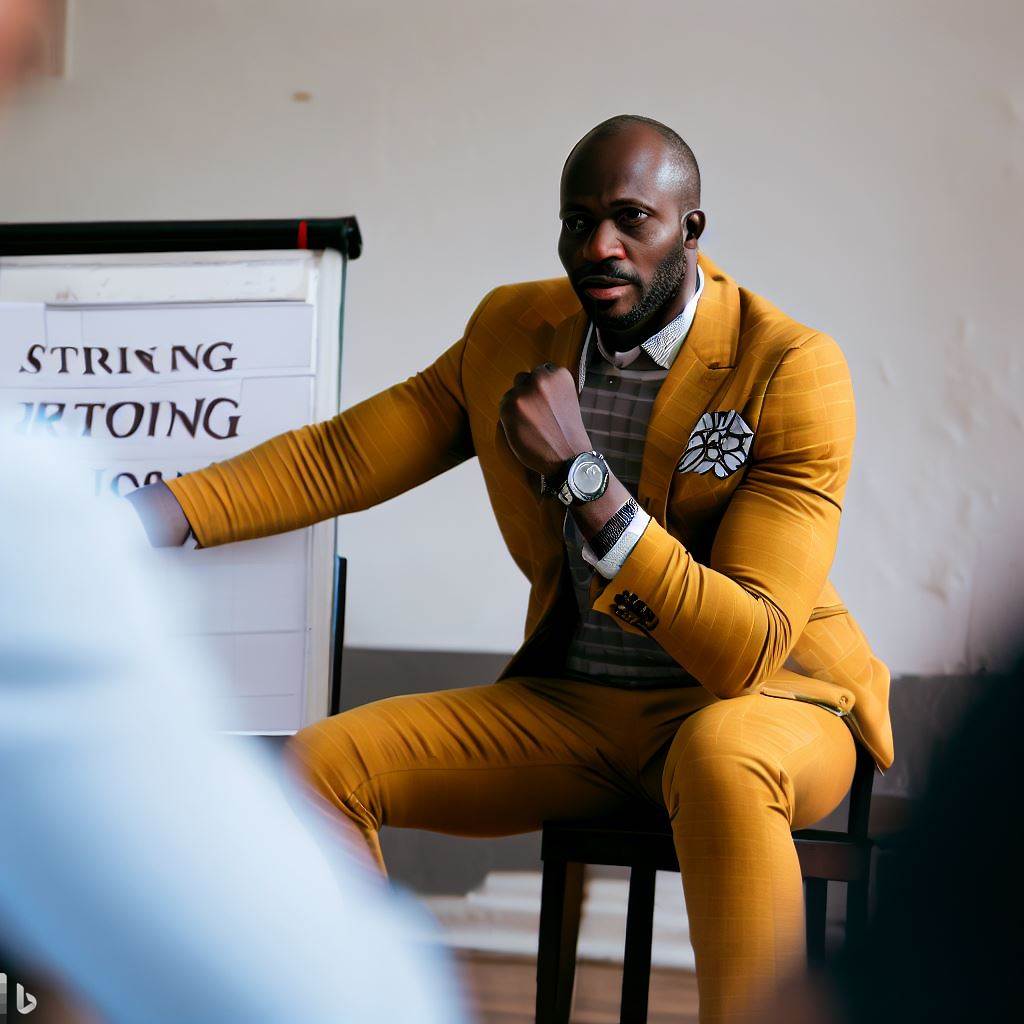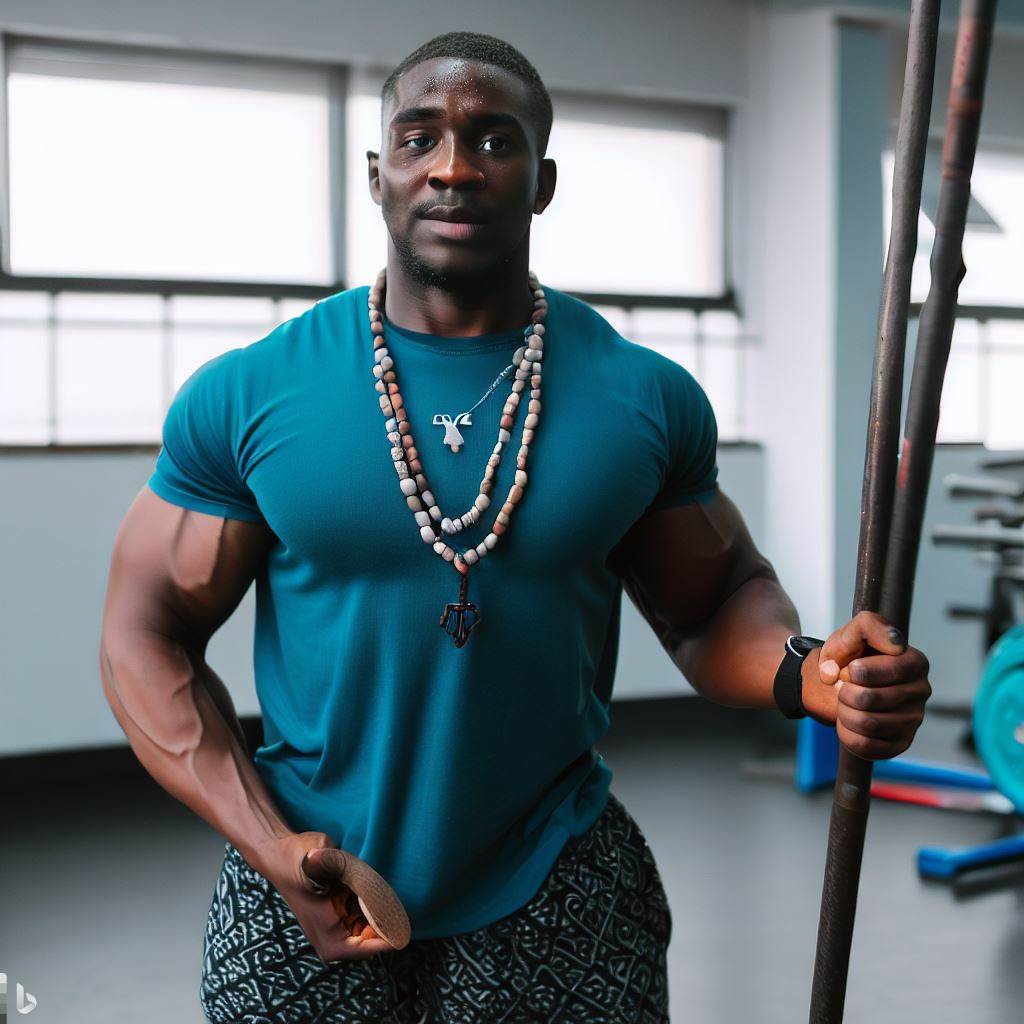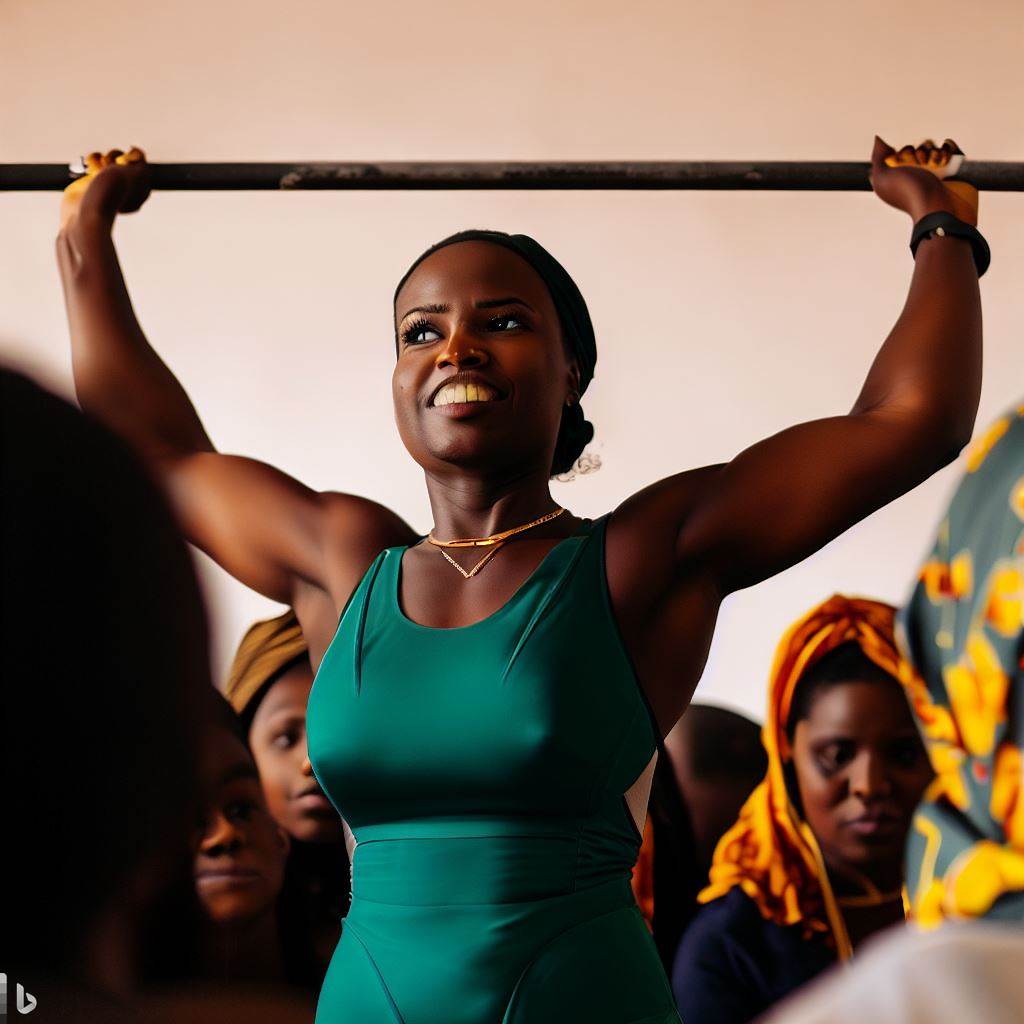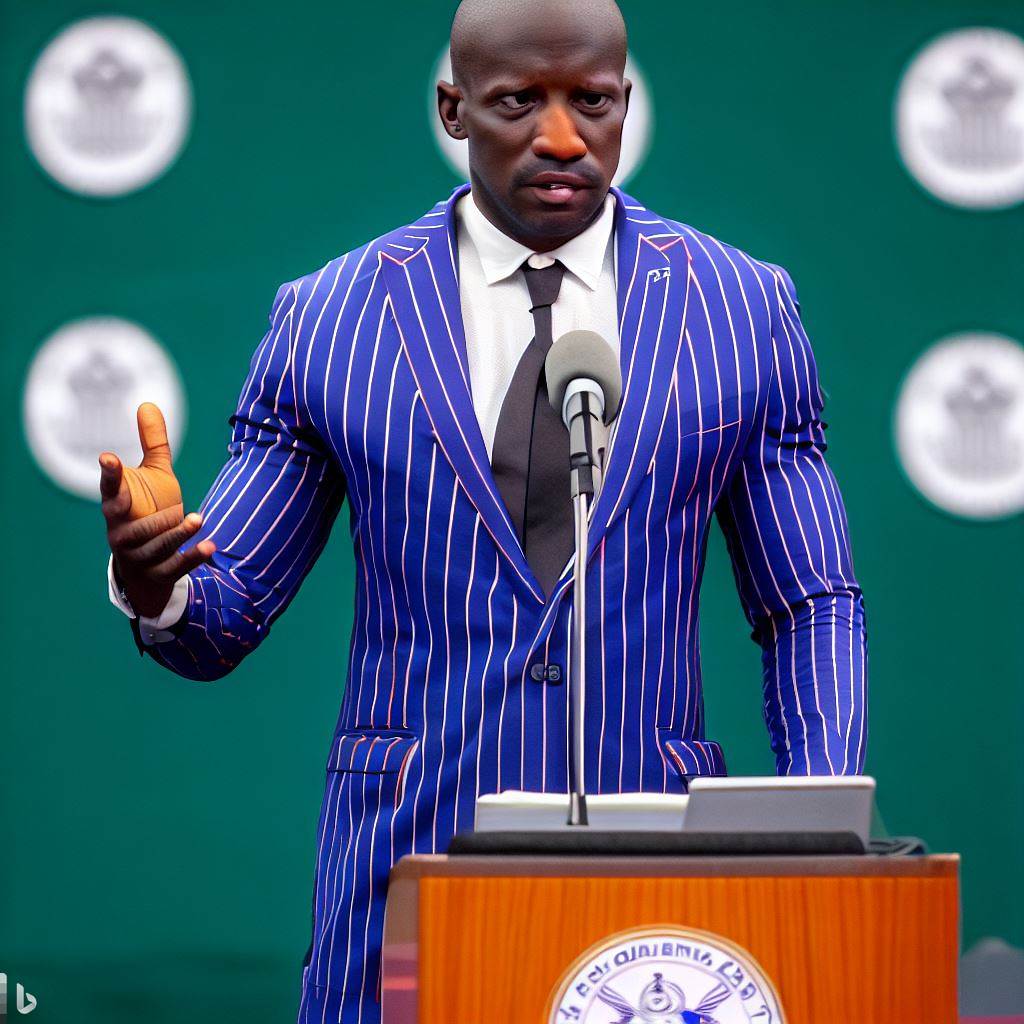Introduction
Athletic directors are key figures in shaping Nigeria talent through these programs.
Youth programs play a crucial role in nurturing and enhancing talent development in Nigeria.
In this article, we will explore the importance of youth programs and how athletic directors contribute to shaping talent development in Nigeria.
Youth programs provide a platform for young individuals to showcase their skills and potentials.
These programs offer opportunities for talent identification and nurturing.
Athletic directors, as leaders of youth programs, play a vital role in guiding and supporting young athletes.
Nigeria has a vast pool of untapped talent, and athletic directors have the responsibility to identify and nurture these talents.
They provide guidance, mentorship, and training to young athletes, helping them reach their full potential.
The article will discuss the various ways athletic directors contribute to talent development.
They organize competitions, training sessions, and workshops to improve skills and expose young athletes to opportunities.
Athletic directors also offer guidance on nutrition, fitness, and overall well-being.
Furthermore, the article will highlight success stories of athletes who have benefited from youth programs and the contributions of athletic directors.
It will showcase how these programs have positively impacted the lives of young individuals and contributed to the overall development of sports in Nigeria.
In essence, youth programs and the role of athletic directors are essential in shaping Nigeria talent.
Through these programs, young individuals are given the opportunity to discover and polish their skills, ultimately contributing to the growth and success of Nigerian sports.
The Current State of Youth Programs in Nigeria
Athletic directors play a crucial role in shaping Nigeria talent by providing youth programs.
However, these programs face several challenges:
A. Lack of funding and resources
- The current state of youth programs in Nigeria is hampered by a lack of funding and resources.
- Without sufficient financial support, it becomes difficult to provide adequate training and infrastructure to nurture talented individuals.
- Many talented young athletes are unable to reach their full potential due to limited resources and opportunities.
- Funding constraints also affect the quality of coaching available, hindering the development of future sports stars.
- Investing in youth programs is essential to identify and nurture talent, which can bring glory to the nation on a global stage.
B. Limited access to sports facilities and equipment
- In Nigeria, youth programs struggle due to limited access to sports facilities and equipment.
- Due to a lack of proper infrastructure, young athletes face challenges in honing their skills.
- Sports facilities are scarce, especially in rural areas, making it difficult for talented individuals to access training grounds.
- Without adequate equipment, aspiring athletes find it challenging to practice and enhance their abilities.
- The government and relevant authorities must invest in building sports facilities across the country to provide equal opportunities for youth.
C. Inadequate coaching and training
- Inadequate coaching and training present significant hurdles for youth programs in Nigeria.
- Qualified coaches are in short supply, limiting the guidance and mentorship available to young athletes.
- Without proper coaching, talent can go to waste, and aspiring athletes may face difficulty in reaching their goals.
- There is a need to provide comprehensive training programs that focus on both physical fitness and mental preparation.
- By investing in professional coaching and training resources, Nigeria can cultivate a generation of world-class athletes.
In general, youth programs in Nigeria face challenges such as lack of funding, limited access to sports facilities and equipment, and inadequate coaching and training.
It is crucial for the government, sports organizations, and individuals to address these issues and provide the necessary support to nurture the country’s talent.
By investing in youth programs, Nigeria can unlock the potential of its young athletes and create a bright future for sports in the nation.
Read: Legalities of Strength Coaching in Nigeria
The Role of Athletic Directors in Youth Programs
A. Identifying and Nurturing Talent
- Athletic directors play a crucial role in identifying and shaping Nigeria talent among young athletes.
- They observe and assess athletes’ skills, abilities, and potential for growth.
- Once identified, directors work closely with talented individuals to nurture their abilities.
- They provide specialized training, coaching, and opportunities for skill development.
- Through their guidance, directors ensure that young talents receive appropriate attention and support.
- They create an environment where athletes can thrive and reach their full potential.
- Directors often collaborate with coaches, trainers, and other professionals to maximize talent development.
- They monitor progress regularly and adjust training programs to address individual needs.
- Athletic directors are committed to helping athletes excel in their chosen sports.
- They provide motivation, encouragement, and constructive feedback to inspire young talents.
B. Creating a Structured Development Pathway
- Athletic directors establish a clear and structured pathway for athletes’ development.
- They design programs that outline the necessary steps and milestones to progress in sports.
- Directors ensure that athletes have access to age-appropriate training and competitions.
- They organize leagues, tournaments, and events to provide competitive opportunities.
- By structuring the pathway, directors help athletes set goals, measure progress, and plan their futures.
- They guide athletes in making informed decisions about their sports careers.
- Directors assist in navigating the complexities of scholarship opportunities and professional pathways.
- They connect athletes with colleges, universities, and scouts to explore further options.
- The structured development pathway ensures that young talents have a clear roadmap for success.
- By following the pathway, athletes can make the most of their abilities and achieve their dreams.
C. Providing Guidance and Mentorship
- Athletic directors serve as mentors and role models for young athletes.
- They offer guidance in sportsmanship, discipline, and personal growth.
- Directors teach athletes important life skills, such as teamwork, perseverance, and leadership.
- They instill values of fair play, respect, and integrity within the team and among competitors.
- Directors provide emotional support and help athletes navigate challenges and setbacks.
- They offer advice on balancing academics, sports, and personal commitments.
- Athletic directors foster a positive and inclusive team culture that values diversity and unity.
- They encourage athletes to give back to their communities through volunteer work.
- Directors inspire athletes to become ambassadors of their sports and make positive impacts.
- Through mentorship, directors shape not only athletes’ athletic abilities but also their character.
Essentially, athletic directors play indispensable roles in youth programs in Nigeria.
Their efforts in identifying and nurturing talent, creating structured development pathways, and providing guidance and mentorship are vital for the success and growth of young athletes.
By embracing these responsibilities, athletic directors contribute significantly to shaping Nigeria talent and fostering a bright future for sports in the country.
Read: Public Health & Strength Coaching in Nigeria
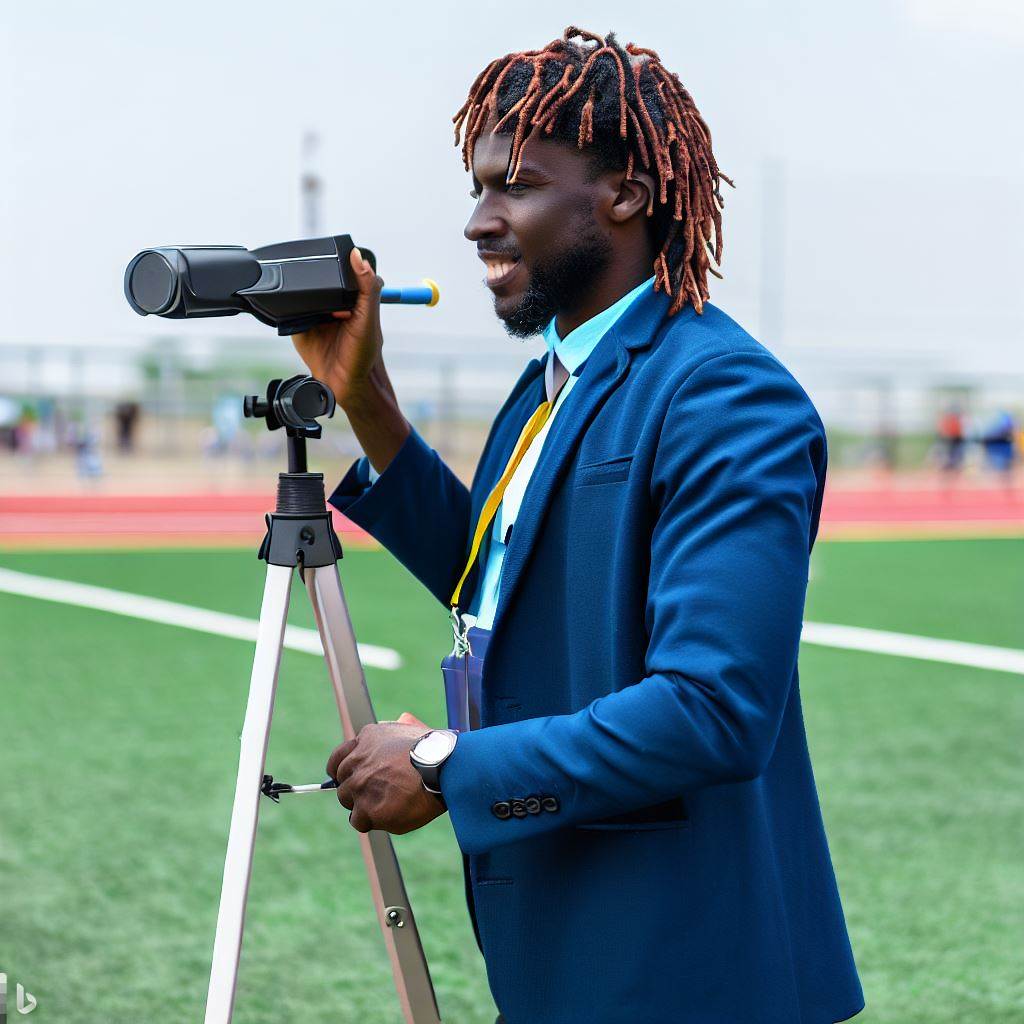
Success Stories of Athletic Directors in Nigeria
A. Notable individuals who have made a difference
- Samuel Adamu: As an athletic director, Samuel Adamu has successfully nurtured young talent in Nigeria, particularly in the field of football.
- Blessing Akinyemi: Blessing Akinyemi’s dedication to athletics has seen her contribute significantly to the development of young athletes in Nigeria.
- Emmanuel Adebayo: Emmanuel Adebayo, an athletic director known for his passion and commitment, has played a key role in shaping Nigeria’s talent.
- Fatima Ibrahim: Fatima Ibrahim, through her innovative approach, has made a remarkable impact on the development of female athletes in Nigeria.
B. Impact of their initiatives on talent development
- These athletic directors have provided platforms for young athletes to showcase their skills and potential.
- Through their initiatives, young talents have been given opportunities to receive scholarships and further their education.
- The initiatives of these athletic directors have led to an increase in the number of Nigerian athletes competing at international levels.
- Their programs have not only developed talent but also instilled discipline and a strong work ethic in young athletes.
C. Strategies and approaches they have implemented
- These athletic directors have organized talent identification programs to identify promising athletes at a young age.
- They have collaborated with schools and communities to create a solid foundation for talent development.
- Nutritional programs and healthcare support have been implemented to ensure the overall well-being of the young athletes.
- Mentorship programs have been established to provide guidance and support to talented individuals.
Basically, the success stories of athletic directors in Nigeria highlight their significant contributions to talent development.
Through their initiatives, notable individuals like Samuel Adamu, Blessing Akinyemi, Emmanuel Adebayo, and Fatima Ibrahim have made a difference in shaping Nigeria’s talent.
Their impact can be seen through the opportunities provided to young athletes, increased participation at international levels, and the instillation of discipline and work ethic.
The strategies and approaches they have implemented, including talent identification programs, collaborations with schools and communities, and mentorship programs, have further strengthened talent development in Nigeria.
These success stories serve as an inspiration for future athletic directors and emphasize the importance of investing in youth programs to shape the talent of a nation.
Read: Strength Coaching: The Nigerian Market Insight
Challenges Faced by Athletic Directors in Nigeria
A. Dealing with limited funding and resources
- Securing adequate funding for youth programs is a constant struggle for athletic directors in Nigeria.
- Limited financial resources hinder the development of quality infrastructure and training facilities.
- Without proper funding, athletic directors find it challenging to provide necessary equipment and coaching staff.
- Lack of funds also affects the organization of tournaments, competitions, and talent identification activities.
- Athletic directors have to constantly seek sponsorships and partnerships to bridge the funding gap.
B. Overcoming cultural and societal barriers
- Traditional beliefs and cultural norms often prioritize academic pursuits over sports in Nigeria.
- Athletic directors face resistance from parents and communities who view sports as a distraction from education.
- Changing societal perspectives and educating stakeholders on the importance of sports is an ongoing challenge.
- Overcoming gender biases and promoting equal opportunities for both male and female athletes is crucial.
- Cultural barriers must be addressed to encourage parents to support their children’s athletic ambitions.
C. Addressing the lack of awareness and support for youth programs
- Many people in Nigeria are unaware of the benefits and potential of organized youth sports programs.
- The lack of awareness leads to a limited pool of participants and difficulty in talent identification.
- Athletic directors must invest significant efforts in promoting youth programs through media and community engagement.
- Collaborating with schools and educational institutions to integrate sports into the curriculum can help raise awareness.
- Obtaining support from government bodies, sponsors, and influential figures is crucial to sustain youth programs.
Overall, athletic directors in Nigeria face various challenges while shaping the country’s talent through youth programs.
Dealing with limited funding and resources is a constant struggle that hampers infrastructure development and provision of necessary equipment.
Overcoming cultural and societal barriers, such as prioritizing academics over sports, requires continuous efforts to change perspectives.
Addressing the lack of awareness and support for youth programs demands extensive promotion and collaboration with different stakeholders.
Despite these challenges, athletic directors remain determined to shape Nigeria’s talent and provide opportunities for young athletes to succeed.
Read: A Day in the Life of a Nigerian Athletic Director
Recommendations for Enhancing Youth Programs
A. Advocating for increased government support and investment
- Engage with policymakers to prioritize youth programs and secure adequate funding.
- Highlight the benefits of investing in youth talent development for the nation’s future.
- Promote partnerships between athletic directors and government agencies to maximize resources.
- Advocate for the inclusion of mandatory youth programs in national educational policies.
- Launch awareness campaigns to mobilize public support for increased government investment.
B. Partnering with private organizations and sponsors
- Forge strategic partnerships with private organizations to access additional funding and resources.
- Develop mutually beneficial sponsorship agreements with corporate entities interested in youth sports.
- Promote the social responsibility initiatives of private companies through collaboration.
- Create recognition programs for sponsors to highlight their impact on youth talent development.
- Establish transparent frameworks for accountability and effective use of sponsorships.
C. Empowering grassroots coaches and volunteers
- Provide training and capacity-building programs to enhance the skills of grassroots coaches.
- Encourage collaboration between experienced coaches and grassroots volunteers for knowledge sharing.
- Establish mentorship programs to support the professional development of grassroots coaches.
- Create platforms for networking and sharing best practices among coaching communities.
- Recognize and reward the dedication and contribution of grassroots volunteers in youth programs.
Lastly, enhancing youth programs in Nigeria requires a multi-dimensional approach.
Advocating for increased government support and investment is crucial to secure sustainable funding.
Partnering with private organizations and sponsors can provide additional resources and promote corporate social responsibility.
Empowering grassroots coaches and volunteers through training and mentorship programs will ensure the growth and success of youth talent development.
By implementing these recommendations, athletic directors can shape Nigeria’s talent and contribute to a brighter future for the country.
Conclusion
- Youth programs play a pivotal role in shaping Nigeria’s talent, fostering development, and creating opportunities for the youth.
- Athletic directors deserve recognition for their instrumental role in identifying and nurturing talented individuals in Nigeria.
- It is crucial for individuals, communities, and government bodies to actively promote and support youth programs to ensure the continued growth and success of Nigerian talent. Let us stand together in empowering the next generation.

